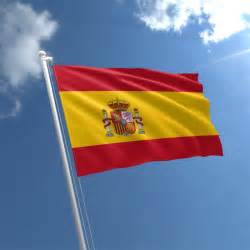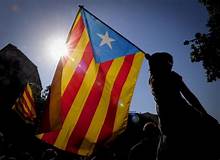‘Plague’ On sale now £9.99
Tags
Follow J.J.Anderson on Facebook
Follow J.J.Anderson on Pinterest
Archives
-
Recent Posts
Categories
http://www.thestorybazaar.com/rss.xml
Social
-
Privacy & Cookies: This site uses cookies. By continuing to use this website, you agree to their use.
To find out more, including how to control cookies, see here: Cookie Policy
A feast for the imagination


 RSS – Posts
RSS – Posts
As you were
…. but possibly more divided than ever.
The Catalan regional election of 21st December has not resolved the situation in Catalonia. The Cuidadanos or Citizens Party (unionist) of the centre right was the highest polling party in terms of votes and seats ( 25.4% and 36 ), overtaking JxC or Together for Catalonia, lead by Carles Puigdemont, which achieved 21.7% and 34 seats. The Republican Left, pro-independence allies of Puigdemont, gained 21% and 32 seats. This means that ERC and JxC, together with the far left CUP (four seats) have a wafer thin majority in the 135 seat Generalidad, less than formerly and assuming that they can form a coalition.
the highest polling party in terms of votes and seats ( 25.4% and 36 ), overtaking JxC or Together for Catalonia, lead by Carles Puigdemont, which achieved 21.7% and 34 seats. The Republican Left, pro-independence allies of Puigdemont, gained 21% and 32 seats. This means that ERC and JxC, together with the far left CUP (four seats) have a wafer thin majority in the 135 seat Generalidad, less than formerly and assuming that they can form a coalition.
Barcelona, by far the most populous area in the region, and Tarragona, the other large city, are the least independence minded, while Girona and Lleida, a predominantly rural hinterland, are most supportive of the secessionist parties (the electoral system slightly favours the rural elements). Parties which promoted moderation, like the Socialists and the Catalan equivalent of Podemos, did not do well. The corruption stained Partido Popular of the right, lead by Prime Minister Mariano Rajoy, was reduced to a hand full of seats.
while Girona and Lleida, a predominantly rural hinterland, are most supportive of the secessionist parties (the electoral system slightly favours the rural elements). Parties which promoted moderation, like the Socialists and the Catalan equivalent of Podemos, did not do well. The corruption stained Partido Popular of the right, lead by Prime Minister Mariano Rajoy, was reduced to a hand full of seats.
Thus far both Cuidadanos and the pro-independence parties have been celebrating a victory. In fact what we have is a stalemate.
Though some things have changed.
The separatists must now realise that the chances of Catalonia being recognised as a unilaterally declared state, independent of Spain, are nil – the EU lined up firmly behind the Spanish government during the crisis. Also, they tried it – it failed. So it’s a bolt shot, a ship that has sailed.
In addition, several of the leaders of the separatists are now saying that the aforementioned declaration was symbolic only. There are those among JxC’s allies who are dyed-in-the-wool secessionists, so it is not a foregone conclusion that a coalition will be easy to form and may be even harder to maintain. In addition, eight of the pro-independence politicians elected on Thursday are already incarcerated or face jail and warrants have been issued for more arrests. How will such depletion affect voting in the parliament?
Rajoy and the PP have some facing up to do too. The Catalonia crisis isn’t going to go away. There are real constitutional issues here and they aren’t going to be addressed by calling pro-independence supporters criminals. The pro-independence politicians do have a mandate of sorts, albeit not a clear cut one. For Rajoy, who is the leader of a minority government, despite the support of the main opposition parties over this particular issue, the emergence of Cuidadanos, if replicated on a national scale, is an existentialist threat to his party.
going to be addressed by calling pro-independence supporters criminals. The pro-independence politicians do have a mandate of sorts, albeit not a clear cut one. For Rajoy, who is the leader of a minority government, despite the support of the main opposition parties over this particular issue, the emergence of Cuidadanos, if replicated on a national scale, is an existentialist threat to his party.
Puigdemont says that he and Rajoy must talk, though outside of Spain, something Rajoy is unlikely to agree to. Rajoy says the rule of law must be paramount, though many accuse him of hiding behind the judges. Both sides are even more entrenched, though any unilaterally applied solution is going to leave half of Catalonia unhappy.
The formal declaration of the results of the election will take place on 5th January. 2018 promises to be an interesting year. N.B. For a different definition of the word ‘overwhelming’ read The Demagogue’s Dictionary )
If you enjoyed reading about Catalan politics you might like to read Homage to Catalonia White The View from Here
If you are interested to read about Spanish politics try Hello Prime Minister, We need to talk….. Who rules Spain, erm….. Five days and counting…
Share this:
Posted on 27th December 2017 by juliej Leave a comment
This entry was posted in Political comment and tagged Political comment. Bookmark the permalink.